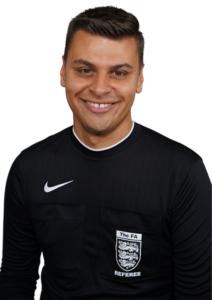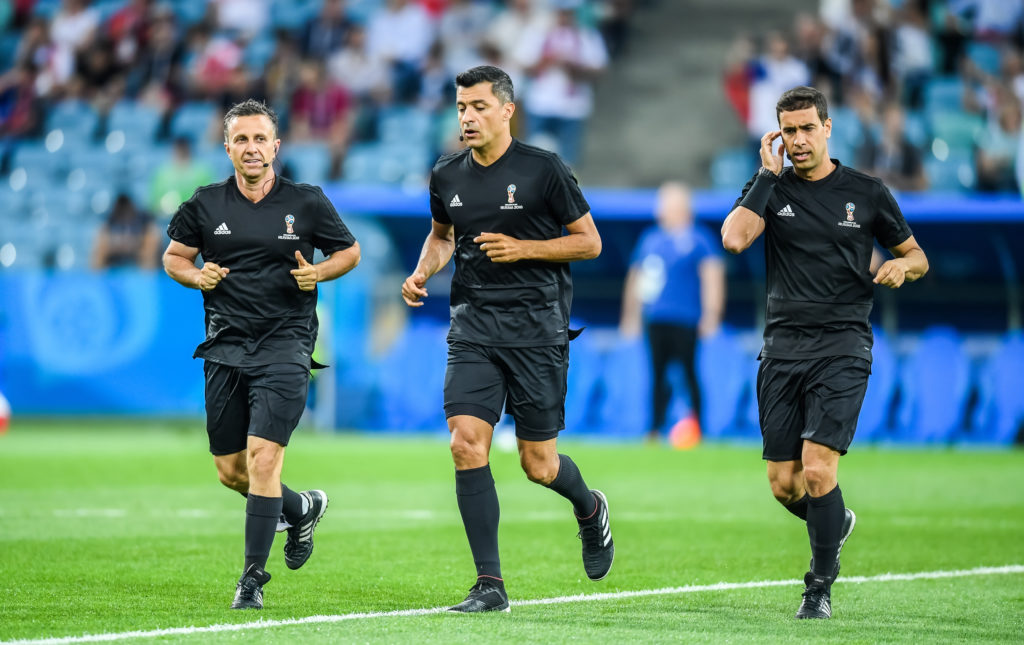Many patterns of performance problems that referees struggle with are a direct result of that individual’s nervous system sensing danger and automatically shutting down. These are problems that are actually caused by biological factors, not mental ones!
All officials who struggle with this share one common mental mistake, they are unable to consistently keep their focus of concentration in the “now” of their performance experience. Referees blocked by fears, haunted by repetitive problems or tormented by an abundance of nerves are so distracted by their negative thinking, doubts and/or inability to perform the way that they used to that they are disconnected from the moment-by-moment flow of the action.
Instead of focusing in the now on what they’re doing in the moment, the official is stuck in the past, obsessing over a mistake or failure, too far ahead of themself, worrying about the future and a dreaded outcome or “time-traveling” back and forth between the two. As a consequence, the referee is not fully present in the present and so misses all of the important performance and timing cues that are so necessary to doing one’s best.
So instead of seeing the action, feeling what the body needs to do and then just reacting, the struggling official overthinks. They question what to do next, mistrust their instincts and tries to “coach” themself through the action. Their concentration is focused completely “upstairs” on thoughts. What this means is painfully simple for the individual, Their performance is completely and unrecognisably poor.
Referees who have been physically and/or emotionally traumatised, suffered injuries or painful failures or mistakes have problems staying in the now. Their worries and the unconscious body memory of past painful experiences keep them from relaxing and attending to the moment by moment flow of the game which is so necessary for optimal performance.
One antidote to this is mastering the skill of staying present, in the now, in your body before and during your performance. This skill begins and ends with awareness. That is, the only way for you to really stay in the now is to be exquisitely aware whenever you mentally leave the now. It’s this self-awareness that you have drifted off to thoughts that then enables you to correct your focus before it’s too late.
What Does ‘Being In The Now’ Mean?
Being in the now doesn’t mean that you say things to yourself like, “Stay in the now!” “Come on, you’ve drifted, you have to get back to the now!” If those things are going through your head, then you are thinking, not being! Being in the now means that you keep your focus on what you are doing, without thoughts, while you are doing it! You see the tackle as it is made. You feel the stride that you’re taking right now and notice how relaxed your muscles are. You feel the stretch in your arm as you make a signal. You focus on feeling your first decision of the game as you walk out onto the field of play. You feel yourself running across the field of play with flag or whistle in hand as you do so..
While all of this may sound so simple, it is far from it! Learning to stay present in the present without being sidetracked and hijacked by your thoughts takes a lot of practice.
Exercise
One very simple exercise that you can do at home to sharpen this skill involves sitting comfortably in a chair and turning your focus inside to your breathing. Without altering your breath in any way, notice your inhale and then your exhale. You do this by simply focusing on the physical sensations of the breathing. Where does your breath start? Feel it. Feel your feet on the floor, the back of the chair supporting your back and just follow your breath in and out for 5 minutes. As you do this, thoughts, images and even emotions will intrude. Be aware of them, don’t fight them and simply return your focus back to the body sensation of your breathing.
At The Third Team I work individually and in collaboration with different professionals where I have developed workshops and 1-2-1 sessions associated with Resilience and Mental Toughness Development to help referees. The workshops and 1-2-1 sessions are interactive, where referees are encouraged to open up and share their experiences to help themselves and each other.
Feel free to contact me if you’d like to know more about my workshops or 1-2-1 sessions and how I could help you or your officials.
Best Wishes,

Nathan Sherratt
Referee Educator & Managing Director of The Third Team

Nathan Sherratt
Nathan Sherratt, Referee Educator, Resilience Trainer and Managing Director of The Third Team. A Mental Toughness Practitioner based in County Durham, North East England.

